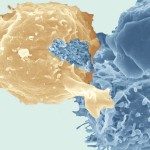Lien vers Pubmed [PMID] – 30301637
Lien DOI – 10.1016/j.jid.2018.04.042S0022-202X(18)32360-1
J Invest Dermatol 2019 Jan; 139(1): 31-37
The Pemphigus Disease Area Index (PDAI) and Autoimmune Bullous Skin Disorder Intensity-Score (ABSIS) scores have been proposed to provide an objective measure of pemphigus activity. These scores have been evaluated only on already treated patients mainly with mild to moderate activity. The objective was to assess the interrater reliability of ABSIS and PDAI scores and their correlation with other severity markers in a large international study. Consecutive patients with newly diagnosed pemphigus were enrolled in 31 centers. Severity scores were recorded during a 24-month period by the same two blinded investigators. Serum was collected at each visit for ELISA measurement of anti-desmoglein antibodies. The intraclass correlation coefficient (ICC) and Spearman rank correlation coefficient were calculated. A total of 116 patients with pemphigus vulgaris (n = 84) or pemphigus foliaceus (n = 32) were included. At baseline, the ABSIS and PDAI ICCs were 0.90 (95% confidence interval [CI] = 0.85-0.93), and 0.91(95% CI = 0.87-0.94), respectively. The ICCs for PDAI were higher in moderate and extensive pemphigus (ICC = 0.82, 95% CI = 0.63-0.92 and ICC = 0.80, 95% CI = 0.62-0.90, respectively) than in patients with intermediate (significant) extent (ICC = 0.50, 95% CI = 0.27-0.68). Conversely, the ICCs for ABSIS were lower in patients with moderate extent (ICC = 0.44, 95% CI = 0.004-0.74) than in those with intermediate or extensive forms, (ICC = 0.69, 95% CI = 0.51-0.81 and ICC = 0.75, 95% CI = 0.51-0.88, respectively). During patients’ follow-up, the ICCs of both ABSIS and PDAI scores remained higher than 0.70. ABSIS and PDAI skin (r = 0.71 and r = 0.75) but not mucosal (r = 0.32 and r = 0.37) subscores were correlated with the evolution of anti-DSG1 and anti-DSG3 ELISA values, respectively. ABSIS and PDAI scores are robust tools to accurately assess pemphigus activity.


